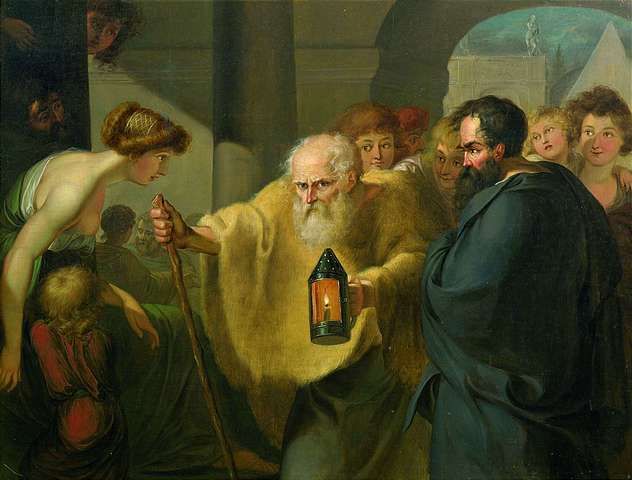Deception
On Hyper-Sanity
Both mental disorder and hyper-sanity place us outside society.
Posted June 11, 2016 Reviewed by Jessica Schrader
Self-deception is the price that we pay for our sanity.
This self-deception holds us together by shielding us from truths that threaten to undermine our sense of self, or ego integrity. A person on the verge of ego disintegration makes frenzied use of self-deceptive ego defences such as denial, repression, splitting, and so on. The resulting loss of perspective or change in function can in itself count as mental disorder, while the ultimate capitulation of the ego defences leads in particular into the depressive position.
By protecting us from fearsome truths, ego defences not only blind us to those truths and so to reality, but also confuse and constrict our thinking. Their partial or temporary failure can lead to a range of psychological disturbances including anxiety, anger, irritability, insomnia, and nightmares. The more they are challenged, the more exaggerated, compulsive, and inflexible they become. The person is reduced in scope and ability, with little left of the capacities for consciousness, spontaneity, and intimacy that define, elevate, and glorify the human condition.
A vicious cycle takes hold: the more constrained a person becomes, the less he is able to reason; and the less he is able to reason, the less he is able to overcome his constraints. For the philosopher Aristotle, the distinctive function of human beings is to reason, and, therefore, the happiness of human beings is to lead a life of reason. Reason begets freedom, and freedom begets reason, and both together beget knowledge of the truth, which is wisdom, which is the highest happiness.
Once, upon being asked to name the most beautiful of all things, the philosopher Diogenes the Cynic replied parrhesia, which means 'free speech' or 'full expression.' Diogenes used to stroll around Athens in broad daylight brandishing an ignited lamp. Whenever curious people stopped to ask what he was doing, he would reply, 'I am just looking for a human being.'

Self-deception, which is often rooted in the unconscious or semi-conscious fear of falling short of familial and societal standards, and in the fear of death, is a defining part of our human nature. By recognizing its various forms in ourselves and reflecting upon them, we may be able to transcend them and, even, in some cases, to employ and enjoy them.
This self-knowledge, which I call super- or hyper-sanity, opens up a whole new world before us, rich in beauty, subtlety, and connection, and frees us not only to make the best out of it, but also to give it back the best of ourselves, and, in so doing, to fulfil our potential as human beings.
Reasoning is but one route to self-knowledge or hyper-sanity. The other route—more painful, destructive, and uncertain—is mental disorder, or 'madness,' which involves the failure or complete breakdown of the ego defenses. Unlike medical, or physical, disorders, mental disorders are not just problems. If successfully navigated, they can also present opportunities. Simply acknowledging this can empower people to heal themselves and, much more than that, to grow from their experiences.
At the same time, mental disorders should not be romanticized or left unattended simply because they may or may not predispose to problem-solving, personal development, or creativity. Rather than being medicalized or romanticized, mental disorders, or mental 'dis-eases', should be understood as nothing less or more than what they are, a cry from our deepest human nature.
Both mental disorder and hyper-sanity place us outside society, making us seem 'mad' to the mainstream. Both attract scorn and derision, but whereas mental disorder is distressing and disabling, hyper-sanity is liberating and empowering.
Ultimately, standing out is the price we pay for being outstanding.
Neel Burton is author of Hypersanity: Thinking Beyond Thinking and other books.


